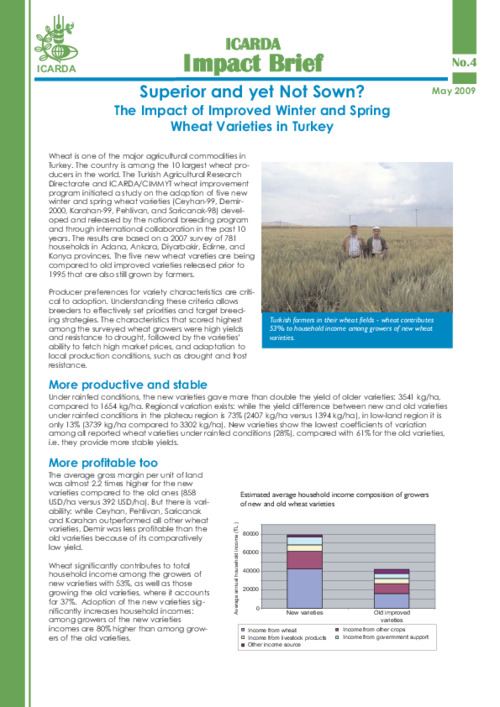The Impact of Improved Winter and Spring Wheat Varieties in Turkey
Abstract
Wheat is one of the major agricultural commodities in Turkey. The country is among the 10 largest wheat producers in the world. The Turkish Agricultural Research Directorate and ICARDA/CIMMYT wheat improvement program initiated a study on the adoption of five new winter and spring wheat varieties (Ceyhan-99, Demir- 2000, Karahan-99, Pehlivan, and Saricanak-98) developed and released by the national breeding program and through international collaboration in the past 10 years. The results are based on a 2007 survey of 781 households in Adana, Ankara, Diyarbakir, Edirne, and Konya provinces. The five new wheat vareties are being compared to old improved varieties released prior to 1995 that are also still grown by farmers.
Producer preferences for variety characteristics are critical to adoption. Understanding these criteria allows breeders to effectively set priorities and target breeding strategies. The characteristics that scored highest among the surveyed wheat growers were high yields and resistance to drought, followed by the varieties’ ability to fetch high market prices, and adaptation to local production conditions, such as drought and frost resistance

